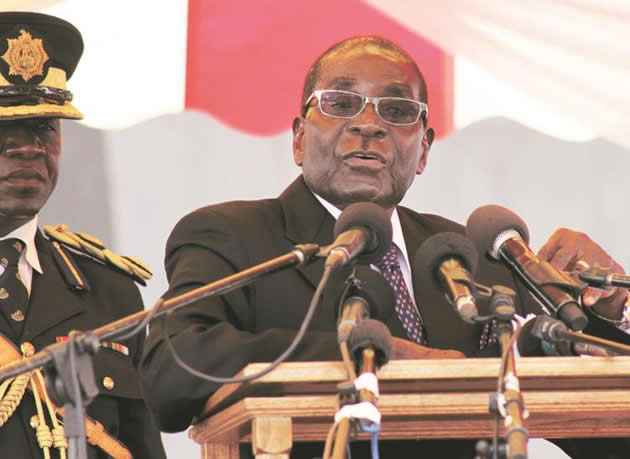Fort Hare @ 100: The case for thought leadership

Stanely Mushava Features Correspondent
The University of Fort Hare’s centennial celebrations have flared up deliberations on the state of higher education at the historic university and the sub-region.
The university, which turned 100 on Monday, fares exceptionally as a springboard of thought leadership. This is particularly true of its early years when it became a hub of politically conscious youths, some of whom became able opponents of the apartheid and colonial systems.
The university is the alma mater of regional notables such as President Robert Mugabe, the late President Nelson Mandela of South Africa, the late President Sir Seretse Khama of Botswana, the late ANC president Oliver Tambo and the late President Ntsu Mokhethle of Lesotho.
Significantly for Zimbabwe, Fort Hare has come to be the default synonym for the Presidential Scholarship Scheme which boasted 30 000 undergraduate, masters and doctorate graduates from 15 South African universities as at 2014.
In light of Fort Hare’s civic record and labour of love for black leadership, one can only reflect in dismay on the growing divide between contemporary universities and the public square, particularly in Zimbabwe.
Zintle Filtane, writing for a South African daily, recalls Thabo Mbeki’s impassioned invocation of that golden past where youths represented a frontier whose moral and political force could not be gainsaid.
“Perhaps if we had the power to make them talk, the old silent walls of this university would whisper to us that they have listened to generation after generation of eager and enthusiastic Africans, striving to expand the frontiers of knowledge as well as ensure that, thus armed, they do what they have to do to change especially the African world,” said then South African President Mbeki in 2001.
Leaders across pillar sectors in Africa today set out as shape-shifters during their university days. Contrariwise, a new trajectory is afoot whereby youths are moving away from the public sphere.
Lest we overemphasise, there are still signs of life in our institutions. However, one cannot help noting that disappointing lapse from the days youths representives staked a significant claim to the thought leadership of their day to our own selfie-themed age.
No mystic capacity is required to predict the end of history where student politics is downgrading from an autonomous voice of the youths to an uninspired extension of the party politics of the day.
What nation can be guaranteed sustained greatness whose youths are not active facilitators of their country’s future?
African prospects are youth-based, therefore easily measurable by the level of commitment young people show in ideas of national significance, in the ideological regeneration of their nations.
The writer recently graduated from an institution where student leaders’ claim to fame is organising drinking parties despite the fact that the university is light years behind the science and technology institution it is supposed to be.
When youth leaders would rather induce their constituency to a mental blackout instead of facing the future and claiming the best prospects for their nation through great ideas, you have a fair idea of what tomorrow resembles.
Fort Hare gave us Robert Mugabe, Nelson Mandela and Seretse Khama, men of ideological force and political repute who cannot be said to be carbon copies of any establishment before them, and history would never be the same.
I am not sure the same can be said of our day, judging from the quality of discourse maintained by contemporary student leaders. What do the student leadership have to say about HIV/Aids, about unemployment, capacitation of start-ups, economic injustice and other issues primarily affecting the youths?
By assenting to, or ignoring, mainstream narratives, campus-confined student leaders are progressively impoverishing the public square, breaking with the great tradition which always guaranteed youth movements worldwide a significant place in history books.
As capitalism reinvents its structural injustices to retain its stranglehold on the continent, there is need for corresponding ideological awakenings spearheaded by the youths.
ZK Matthews, Steve Biko and others wrote their own history chapters boldly and unforgettably, all in a youth leader’s work. Africa as we know it was shaped by the youths of yesteryear.
The great crisis of our day is the detachment of youths from the public square where preceding student generations staked a monumental stake in the history of the continent.
Where student politics was an institution apart and a platform for great ideas, it has become a negligible cage of uninspired parrots, a plug-in of mainstream politics.
We seldom hear youths speaking of their own accord, whether it is from the university podium or their own associations, yet they are the one demographic which can be trusted to be primarily inspired by the future and sustainable best interest.
In the golden yesteryear, party politics was a dot within the circle of the youth movement; in our day, the youth movement is the dot in the bigger circle of party politics.
It is not hard to imagine what tomorrow will look like when youths represent nothing of a forward-thinking drift.
Back to the sunny side of Fort Hare, the scholarship scheme of which the university is a synonym was introduced by President Mugabe in 1995 with a view of helping underprivileged youths to obtain a university education.
The Zimbabwean leader, who went on to read for six more degrees after Fort Hare, is generally credited for his labour of love for the education sector.
The promotion of education is, without controversy, the jewel in the country’s crown, the prime game-changer for Zimbabwe’s fortunes, going forward.
The Presidential Scholarship Scheme has progressively broadened to encompass students who fail to enrol with local universities and capacitate them for more employment opportunities, a move which necessitated the expansion of the programme from Fort Fare to 14 other universities.
The centennial university epitomises the nation’s great commitment to education, a commitment corroborated by the dispersion of a highly skilled Zimbabwe Diaspora across the world.
As Fort Hare celebrates 100 years of service, we celebrate its feats in the development of black leadership but also lament the vanishing young thought leader from African campuses.
Feedback: [email protected] <mailto:[email protected]>











Comments